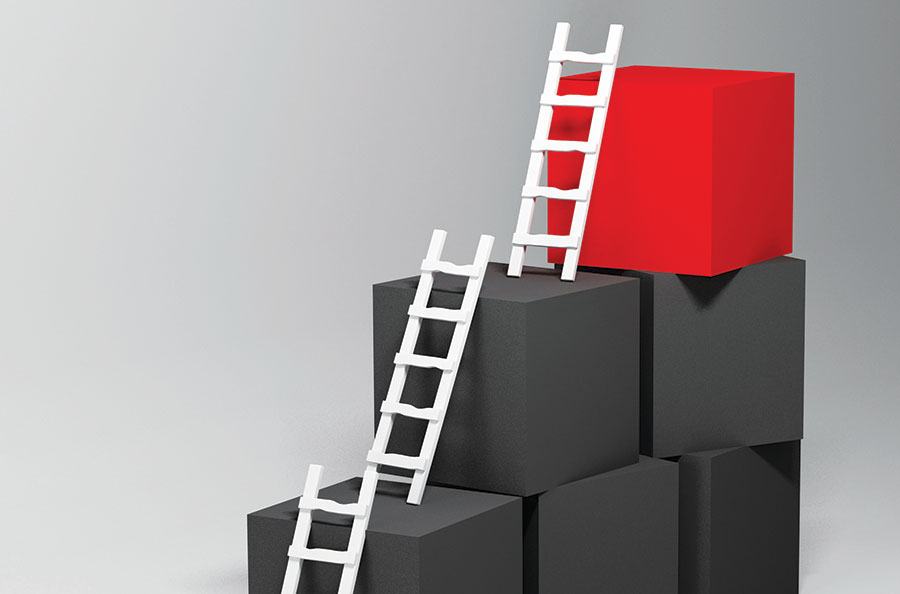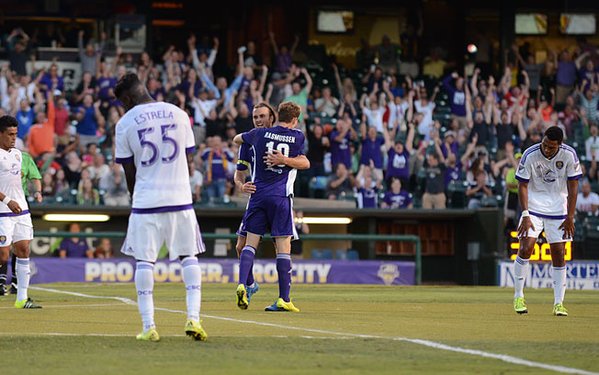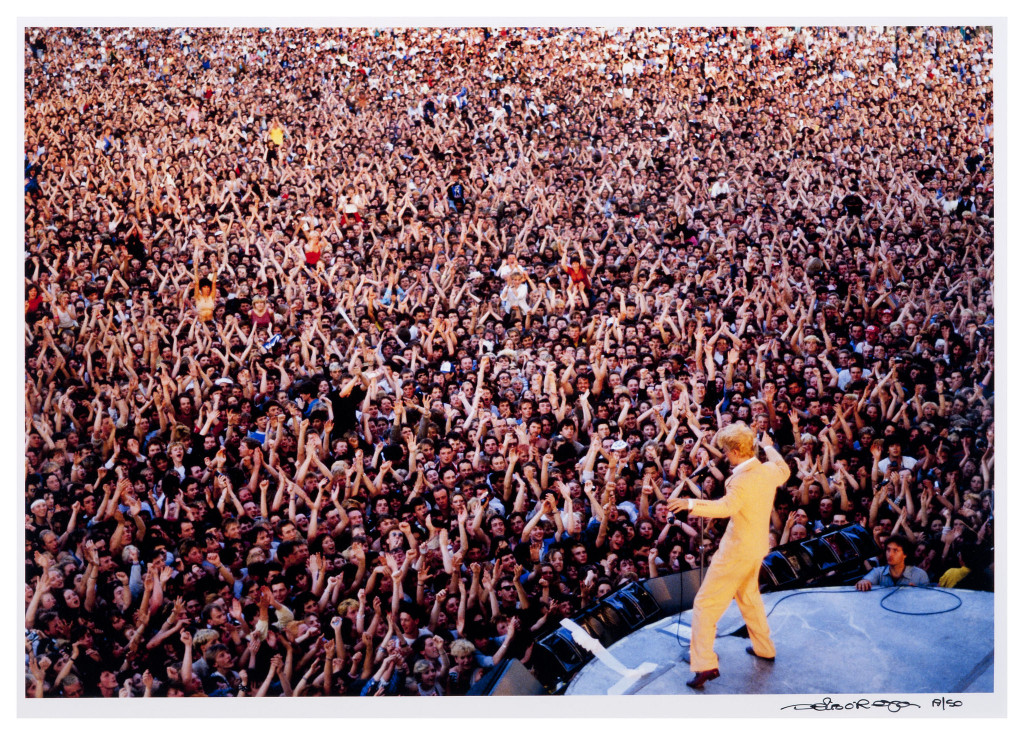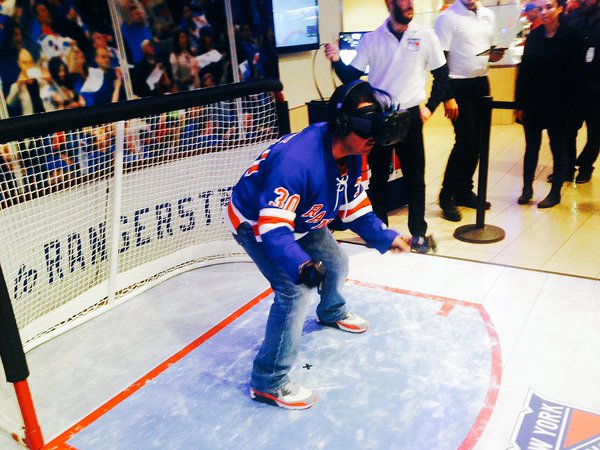Google Hangout: The YP Connection, Featuring John Siehl, CFE

We all know it’s tough to get away from the building to attend IAVM functions when you’re still low on the totem pole. We know funds are tight, especially when you’re still in school. No worries. IAVM is bringing the networking to you.
 The Young Professionals Committee is dedicated to finding new and innovative ways to engage the under-30 membership base. One of these ways is by hosting quarterly “Hangouts” with industry veterans. This quarter, we’ll be having a conversation with John Siehl, CFE, vice president and COO of VenuWorks, on Wednesday, January 20, 1-1:45 p.m. (EST). From current security trends facing our industry to what he looks for in job applicants, John will chat with us for 45 minutes with the opportunity for everyone on the call to ask a question. We’ll also be simulcasting conversation on YouTube if you’re unable to get into the video chat.
The Young Professionals Committee is dedicated to finding new and innovative ways to engage the under-30 membership base. One of these ways is by hosting quarterly “Hangouts” with industry veterans. This quarter, we’ll be having a conversation with John Siehl, CFE, vice president and COO of VenuWorks, on Wednesday, January 20, 1-1:45 p.m. (EST). From current security trends facing our industry to what he looks for in job applicants, John will chat with us for 45 minutes with the opportunity for everyone on the call to ask a question. We’ll also be simulcasting conversation on YouTube if you’re unable to get into the video chat.
Please sign-up here to join the hangout and let us know if you want to be one of the eight face-to-face participants. You can also choose just to view the interview. We hope to see you there!
(Image: Joe the Goat Farmer/Creative Commons)
Committee Call for Volunteers

Volunteers are at the heart of what we do, and it is only because of the time and knowledge our volunteers contribute that we are able to fulfill our mission. We hope, therefore, that you will consider responding to this Committee Call for Volunteers.
As a volunteer, you will be making a difference to this industry and giving back to other members. We hope you will also get value out of your service, making connections with other IAVM leaders and learning about the issues that face us all.
IAVM has two types of committees: board committees and management committees. A board committee helps the board do its work of oversight, strategy and member engagement. Management committees help IAVM’s management do its work of meeting the board’s goals and effectively operating the association to the benefit of our members.
On the website, you will find the list of opportunities available and the volunteer roles and responsibilities for each. To volunteer, please follow the link to complete the survey and tell us where your interest, skills, and abilities will allow you to make the greatest contribution. Even if you currently serve on a committee and wish to continue, you must indicate your interest on this application to be considered for renewal, as all committee appointments have one-year terms and term limits. You may indicate your interest for no more than three committees, so please make sure that you rank your choices with 1 being your highest preference. Finally, given the level of interest in service, we can generally only place you on one committee with some exceptions, such as the Industry Affairs Committee, which is partially filled by specified representatives (sector directors of the board, for example).
The deadline to respond to the Committee Call for Volunteers is Feb. 26, 2016; appointments to board committees will be made by the First Vice Chair, while appointments to management committees will be made by the CEO in consultation with the committee chairs and vice chairs. Volunteers will be notified of their committee assignment by the end of April/first of May.
IAVM welcomes your expertise and commitment to our active and talented group of volunteers. Should you have any questions, please do not hesitate to contact me.
Louisville Announces Study for New Soccer-specific Stadium

The City of Louisville took a major step in supporting Louisville City FC’s goal of building a soccer-specific stadium by announcing a $75,000 feasibility study conducted by CSL International that will examine four potential stadium sites in the Louisville, Kentucky, area.
“Professional soccer is off to a great start in Louisville, and a new soccer stadium could have many positive impacts on our economy,” Mayor Greg Fischer said. “This new investment in soccer will contribute to our authentic and vibrant community and give citizens one central team to rally around.”
Louisville City FC currently plays at Louisville Slugger Field, a minor-league baseball stadium where they averaged more than 6,000 fans per game for the inaugural 2015 season. Louisville City FC took over Orlando City’s USL Franchise after Orlando was awarded an MLS Expansion team in 2015 upon showing similar success at the lower level. As a member of the United Soccer League (USL), Louisville City FC must be in a soccer-specific stadium by 2020 per league policy, but Louisville City FC officials may be looking to follow Orlando’s lead and pursue MLS expansion rights to give Louisville its first team in one of the five major leagues (NFL, NBA, NHL, MLB, MLS).
The study’s results will provide the city an understanding of the potential to support a new 8,000- to 10,000-seat stadium that would have the ability to attract an MLS franchise to an expanded 20,000-seat stadium in the future.
(Image: Twitter)
News You May Have Missed

These are selected news articles that showed up in our inboxes on Monday morning that we want to pass along to you.
David Bowie Tribute Concert to Take Place at Carnegie Hall (Billboard)
“Carnegie Hall will be presenting a memorial concert in tribute to David Bowie and his legacy (the concert was already in the works before he died, but will now be a memorial). Among the confirmed artists to perform thus far are the Roots, Cyndi Lauper, and the Mountain Goats.”
Sydney’s Sport Stadiums to Get a $1 billion-plus Upgrade Thanks to Sell-off of Land and Property Information Service (The Courier Mail)
“Premier Mike Baird has already earmarked $600 million from the Restart NSW fund for the ambitious stadiums plan, which includes the new 50,000-seat stadium at Moore Park, rebuilding Parramatta Stadium and upgrading ANZ Stadium at Homebush.”
First-of-its-kind Cowboys Club in Frisco Starts Selling Memberships to Public (The Dallas Morning News)
“The club also offers multiple dining options, a spa and salon, private and corporate meeting space, a private rooftop swimming pool and billiards tables.”
How College Football Playoff Optimizes Fan Experience on Championship Game Day and Throughout the Year (SportTechie)
“To offer fans the feeling of involvement they are seeking, the CFP Gameday app offers features that deliver immersive college football information, real-time game updates, team rankings, CFP structure and purpose information, and in-app social media interactivity. ”
For Broadway, 2015 Was a Mixed Bag (The Wall Street Journal)
“Despite strong finish in New Year’s week, the year’s numbers don’t measure up to 2014.”
(Image: David Bowie, Milton Keynes Bowl, 1983, taken by Denis O’Regan)
STRIVR Launches Fan Experience Division

It’s already eight days into the new year and I’ve yet to talk about virtual reality (VR). Looks like, though, there’s something new you may be interested in. Yesterday, January 7, STRIVR Labs Inc. announced it launched a Fan Experience and VR Production division to focus on bringing fans and venues unique experiences through technology.
STRIVR recently created an immersive and interactive experience when it partnered with Madison Square Garden and the New York Rangers. Fans had the chance to become a Rangers goalie and block game-like shots in a virtual Madison Square Garden.
“STRIVR has been an incredible partner to MSG,” said Andrew Lustgarten, executive vice president of corporate development and strategy of The Madison Square Garden Co., in a statement. “You truly feel like you are on the ice at The Garden, and it brings our fans to places they’ve never been before.”
The company’s new division will be lead by Logan Mulvey, a former Hollywood film executive, and Brian Murphy, former head of finance and business development at GoDigital and Amplify under Mulvey.
STRIVR was found in February 2015 and is quickly making a name for itself as a sports training platform. There are 23 organizations and universities—such as the Minnesota Vikings, the Washington Capitals, Stanford University, and Clemson University—that make use of its technology to train athletes.
(Image: Twitter)
Do you want to receive a Front Row News weekly digest?
Categories
- Allied (856)
- Architecture (147)
- Arenas (744)
- Career (890)
- Convention Centers (889)
- Education (608)
- Events (1,528)
- Food & Beverage (193)
- Foundation (113)
- Guest Experience (1,482)
- Industry News (2,253)
- Leadership (1,872)
- Marketing (150)
- Membership (1,985)
- Music (212)
- Performing Arts Centers (453)
- Professional Development (398)
- Research (127)
- Safety & Security (425)
- Sports (763)
- Stadiums (607)
- Student (159)
- Technology (515)
- Ticketing (92)
- Touring (82)
- Trends (357)
- Uncategorized (771)
- Universities (216)
- Video (25)
- Young Professional (198)
Twitter Feed
- Twitter feed loading
Recent Posts
- GEODIS Park Selects Allied Universal As Its Preferred Event Services Provider
- Venuworks Appoints Marc Solis as Executive Director of the Fresno Convention and Entertainment Center
- Los Angeles Convention Center Diverts 8,000 Pounds of Wood Waste to Local Foundation Supporting Fire Victims
- Fort Worth Unveils Plans for Phase 2 of Convention Center Transformation
- San Diego Convention Center CEO Announces Retirement After a Decade of Leadership
Categories
- Allied
- Architecture
- Arenas
- Career
- Convention Centers
- Education
- Events
- Food & Beverage
- Foundation
- Guest Experience
- Industry News
- Leadership
- Marketing
- Membership
- Music
- Performing Arts Centers
- Professional Development
- Research
- Safety & Security
- Sports
- Stadiums
- Student
- Technology
- Ticketing
- Touring
- Trends
- Uncategorized
- Universities
- Video
- Young Professional
Archives
- February 2026
- January 2026
- December 2025
- November 2025
- October 2025
- September 2025
- August 2025
- July 2025
- June 2025
- May 2025
- April 2025
- March 2025
- February 2025
- January 2025
- December 2024
- November 2024
- October 2024
- September 2024
- August 2024
- July 2024
- June 2024
- May 2024
- April 2024
- March 2024
- February 2024
- January 2024
- December 2023
- November 2023
- October 2023
- September 2023
- August 2023
- July 2023
- June 2023
- May 2023
- April 2023
- March 2023
- February 2023
- January 2023
- December 2022
- November 2022
- October 2022
- September 2022
- August 2022
- July 2022
- June 2022
- May 2022
- April 2022
- March 2022
- February 2022
- January 2022
- December 2021
- November 2021
- October 2021
- September 2021
- August 2021
- July 2021
- June 2021
- May 2021
- April 2021
- March 2021
- February 2021
- January 2021
- December 2020
- November 2020
- October 2020
- September 2020
- August 2020
- July 2020
- June 2020
- May 2020
- April 2020
- March 2020
- February 2020
- January 2020
- December 2019
- November 2019
- October 2019
- September 2019
- August 2019
- July 2019
- June 2019
- May 2019
- April 2019
- March 2019
- February 2019
- January 2019
- December 2018
- November 2018
- October 2018
- September 2018
- August 2018
- July 2018
- June 2018
- May 2018
- April 2018
- March 2018
- February 2018
- January 2018
- December 2017
- November 2017
- October 2017
- September 2017
- August 2017
- July 2017
- June 2017
- May 2017
- April 2017
- March 2017
- February 2017
- January 2017
- December 2016
- November 2016
- October 2016
- September 2016
- August 2016
- July 2016
- June 2016
- May 2016
- April 2016
- March 2016
- February 2016
- January 2016
- December 2015
- November 2015
- October 2015
- September 2015
- August 2015
- July 2015
- June 2015
- May 2015
- April 2015
- March 2015
- February 2015
- January 2015
- December 2014
- November 2014
- October 2014
- September 2014
- August 2014
- July 2014
- June 2014
- May 2014
- April 2014
- March 2014
- February 2014
- January 2014
- December 2013
- November 2013
- October 2013
- September 2013
- August 2013
- July 2013
- June 2013
- May 2013
- April 2013
- March 2013
- February 2013
- January 2013
- May 2012
- March 2012
- December 2011
- November 2011
- October 2011
Recent Comments
- Frank Bradshaw, Ph.D., CVE on John Meyer, CVE, a Tireless Advocate of Certification for Venue Professionals, Has Died
- Neil Sulkes on Hilary Hartung, Friend to Many in Venue Marketing, Has Left Us
- Jason Parker, CVE on The Devastation of Hurricane Helene and How We Can Support One Another
- Larry Perkins on Touhey Testifies Against Speculative Ticketing Before Congressional Subcommittee
- Peter Secord on Major Players for Planned Elkhart Amphitheater Were in the Mix at VenueConnect
